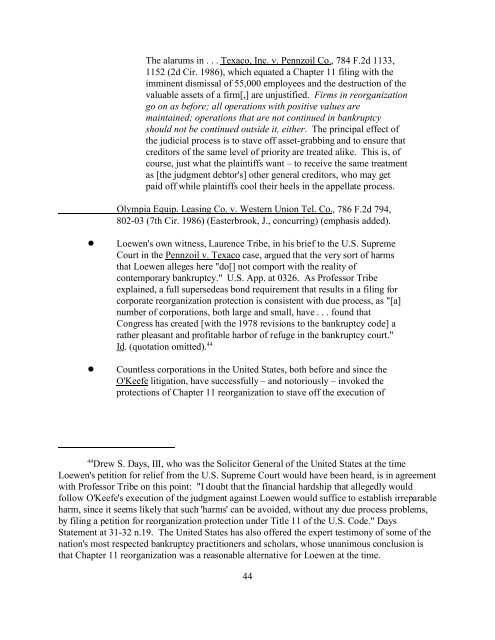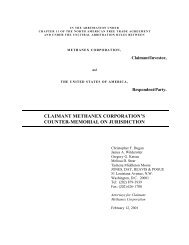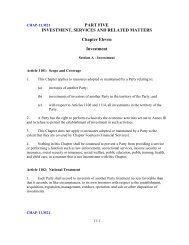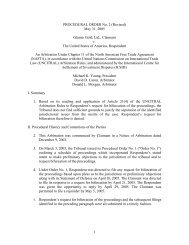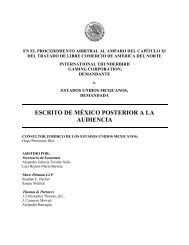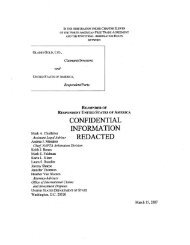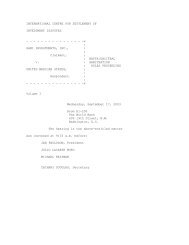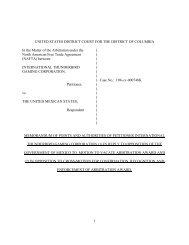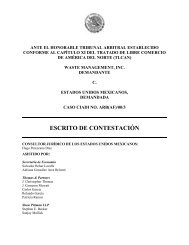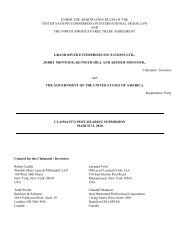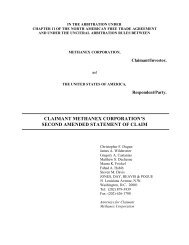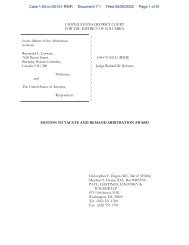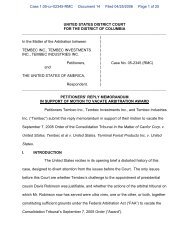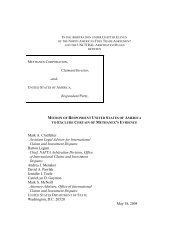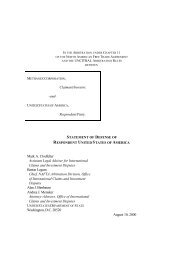THE LOEWEN GROUP, INC. and RAYMOND L. LOEWEN, v. THE ...
THE LOEWEN GROUP, INC. and RAYMOND L. LOEWEN, v. THE ...
THE LOEWEN GROUP, INC. and RAYMOND L. LOEWEN, v. THE ...
Create successful ePaper yourself
Turn your PDF publications into a flip-book with our unique Google optimized e-Paper software.
The alarums in . . . Texaco, Inc. v. Pennzoil Co., 784 F.2d 1133,<br />
1152 (2d Cir. 1986), which equated a Chapter 11 filing with the<br />
imminent dismissal of 55,000 employees <strong>and</strong> the destruction of the<br />
valuable assets of a firm[,] are unjustified. Firms in reorganization<br />
go on as before; all operations with positive values are<br />
maintained; operations that are not continued in bankruptcy<br />
should not be continued outside it, either. The principal effect of<br />
the judicial process is to stave off asset-grabbing <strong>and</strong> to ensure that<br />
creditors of the same level of priority are treated alike. This is, of<br />
course, just what the plaintiffs want – to receive the same treatment<br />
as [the judgment debtor's] other general creditors, who may get<br />
paid off while plaintiffs cool their heels in the appellate process.<br />
Olympia Equip. Leasing Co. v. Western Union Tel. Co., 786 F.2d 794,<br />
802-03 (7th Cir. 1986) (Easterbrook, J., concurring) (emphasis added).<br />
! Loewen's own witness, Laurence Tribe, in his brief to the U.S. Supreme<br />
Court in the Pennzoil v. Texaco case, argued that the very sort of harms<br />
that Loewen alleges here "do[] not comport with the reality of<br />
contemporary bankruptcy." U.S. App. at 0326. As Professor Tribe<br />
explained, a full supersedeas bond requirement that results in a filing for<br />
corporate reorganization protection is consistent with due process, as "[a]<br />
number of corporations, both large <strong>and</strong> small, have . . . found that<br />
Congress has created [with the 1978 revisions to the bankruptcy code] a<br />
rather pleasant <strong>and</strong> profitable harbor of refuge in the bankruptcy court."<br />
Id. (quotation omitted). 44<br />
! Countless corporations in the United States, both before <strong>and</strong> since the<br />
O'Keefe litigation, have successfully – <strong>and</strong> notoriously – invoked the<br />
protections of Chapter 11 reorganization to stave off the execution of<br />
44 Drew S. Days, III, who was the Solicitor General of the United States at the time<br />
Loewen's petition for relief from the U.S. Supreme Court would have been heard, is in agreement<br />
with Professor Tribe on this point: "I doubt that the financial hardship that allegedly would<br />
follow O'Keefe's execution of the judgment against Loewen would suffice to establish irreparable<br />
harm, since it seems likely that such 'harms' can be avoided, without any due process problems,<br />
by filing a petition for reorganization protection under Title 11 of the U.S. Code." Days<br />
Statement at 31-32 n.19. The United States has also offered the expert testimony of some of the<br />
nation's most respected bankruptcy practitioners <strong>and</strong> scholars, whose unanimous conclusion is<br />
that Chapter 11 reorganization was a reasonable alternative for Loewen at the time.<br />
44


